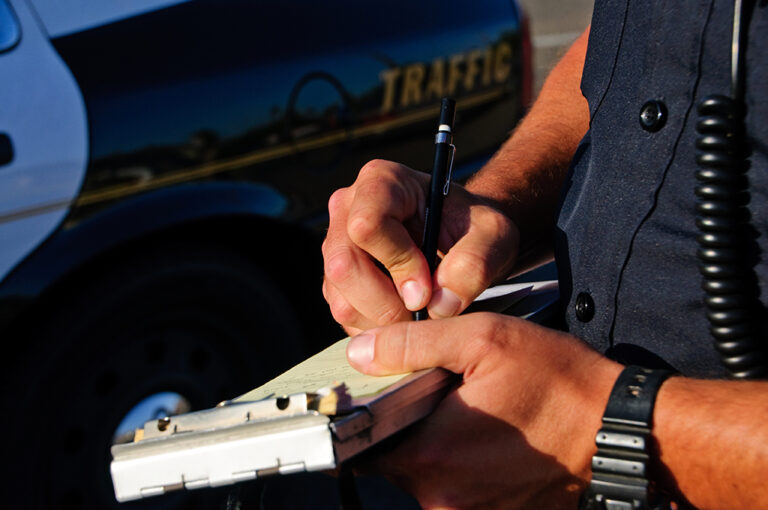Everyone — all two or three of you — that regularly read my columns in The Trucker are probably aware of what I do for a living. For those of you that don’t know, I am a lawyer. I defend CDL drivers (and occasionally myself) in traffic citation cases.
As a result, I see a lot of tickets from around the country.
I have also seen the cost of simple traffic citations continually increase. And not just a little.
However, when you look closely, it is not necessarily the fine associated with the alleged (see what I did there?) violation. The fees that are added to the citation that greatly increase your out-of-pocket expense.
To be honest, all these additional fees would make the phone company proud.
What am I talking about?
Well, I’m glad you asked.
By way of example, let’s look at California.
For the sake of argument — because I know none of you would ever do this — let’s assume you roll a stop in California (first of all, you shouldn’t do that). The actual fine amount associated with the violation is only $35. No one wants to pay $35, but as far as fines go, it’s not that bad.
However, at the end of the day, you would end up paying much more than just the fine amount.
A state penalty assessment adds $10 for every $10 of the base fine and rounds up. So, in this case, that would be an additional $40.
In addition, there’s a county assessment of $7 for every $10 of fine (again, rounded up), which adds another $28.
A court construction assessment will cost you another $20. Then, the Proposition 69 DNA assessment adds $4, and the DNA Identification fund adds another $16.
At the end of the day, 11 separate fees have been added to the original fine amount — bringing the grand total for your citation to $238; the original fine amount of $35 plus additional assessments of $203.
Think of how many times this happens in California.
According to Martin Hoshino, administrative director for the Judicial Council of California, what’s happened is that the state’s government has become accustomed to using these fines and assessments to help generate revenue for various government services.
Now, we could talk about where this additional money goes and how it is used — but let’s save that for another time. Let’s also wait to discuss how these additional financial assessments may impact the policing of drivers.
Instead, let’s take a look at how all this impacts a person’s ability to pay the fine.
Of course, most folks could scrape together $35; however, getting $238 together may be a different thing entirely. Not everyone can afford to pay that amount, and the additional assessment can create a hardship for the person receiving the citation.
But what can be done to address this situation? The Judicial Council, along with California’s State Superior Courts may have a solution.
Their answer allows people to fill out a survey and request a reduction in the amount owed based on their ability to pay. This program started in 2019; by the end of 2021, it was available in seven California counties. There are 12 more counties slated to offer the program this year.
This seems like a fair way to address the financial burden on those who have a lesser ability to pay. Of course, this reduction in the amount paid would have an impact on some municipalities and government functions.
How could this be addressed? I’m not sure.
However, the good folks in Switzerland have an interesting take on fines associated with speeding violations. While the Judicial Council’s solution serves to reduce the fine, the Swiss program works both ways. It can lower or increase the fine amount based on the personal ability to pay.
In Switzerland, the level of fines associated with speeding is determined by both the wealth of the driver and the speed recorded. To that end, a 37-year-old millionaire was recently caught driving 170 kilometers per hour (105 mph) over the speed limit.
The fine, if it stands, would be roughly $1,000,000. This would eclipse the current record of $290,000, a fine given to another Swiss millionaire. As you can see, fines of this size certainly make up for a lot of fine reductions.
At the end of the day, I don’t know what the answer is on how best to address the steady increase in “fines” associated with traffic citations.
I’m also not sure if the California or Swiss solutions are the best options; however, I think they’re something worth talking about.
Brad Klepper is president of Interstate Trucker Ltd. and is also president of Driver’s Legal Plan, which allows member drivers access to services at discounted rates. For more information, contact him at 800-333-DRIVE (3748) or interstatetrucker.com and driverslegalplan.com.
Brad Klepper is a regular contributor to The Trucker, providing valuable insights for drivers and motor carriers. He serves as president of Drivers Legal Plan, a national law firm offering discounted CDL ticket defense to members, and Interstate Trucker, a law firm providing CDL defense with no monthly fees.








